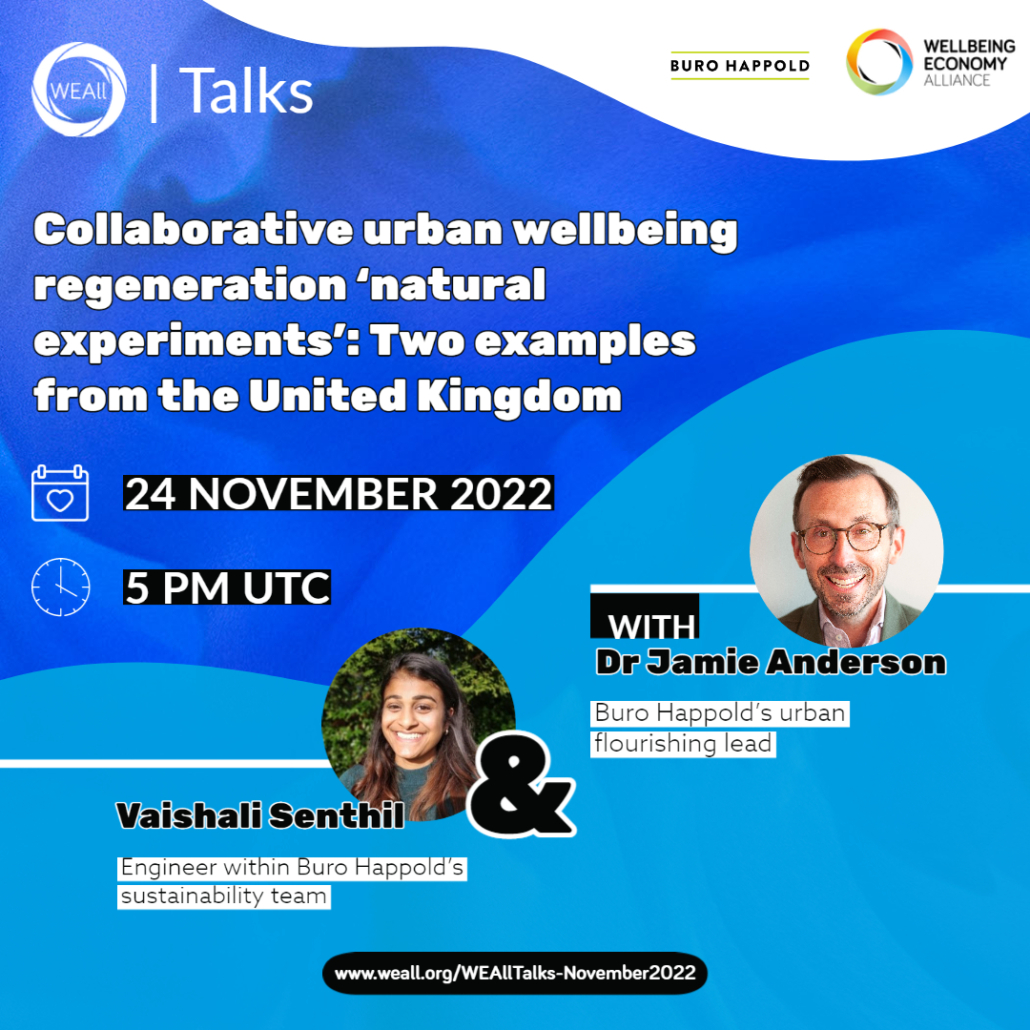This talk outlines two transdisciplinary natural experiments, in two deprived urban areas of Manchester and London (UK). Both projects involve working with local communities to “measure what we treasure” and go beyond traditional measures.
The first involved a new £4 million co-designed ‘sponge’ park in a flood-risk area, at the end of a housing-led regeneration programme in central Manchester. The park interventions involve Nature Based Solutions that will help provide resilience to heatwaves and flooding in the future. However we focus on the large changes in wellbeing behaviour, compared to baseline measures and matched comparison area measures, where no interventions were undertaken.
The second larger case is currently at baseline stage. This scheme is an ambitious £7bn mixed-use urban regeneration project in north London. This new Park Town seeks to inspire better ways of living and working, creating 7,000 homes, workspace for 25,000 and a wealth of sports and leisure facilities, all set around 50 acres of green parks. Unlike most international regeneration schemes, success will be assessed, in part, against a flourishing index, consisting largely of important psychological and social experiences.
We outline our mixed-methods, ‘quadruple helix’ approach, involving a wide array of local government, industry, community and academic partners and collaborators. As well as providing a selection of headline wellbeing findings, we describe some of the trials and tribulations involved in navigating what appears to be largely ‘uncharted territory’ – toward best-practice fusion of wellbeing research, policy and practice at the localised scale.
Dr Jamie Anderson Bio
Jamie leads Buro Happold’s urban flourishing offer within their UK sustainability team, whilst also working part-time at the University of Manchester, leading international wellbeing research. His award-winning PhD was supervised jointly by an urban designer and neuro-psychologist at Cambridge University, and he continues to develop inter-disciplinary approaches, working with digital and analogue, quantitative and qualitative techniques. He is fortunate to have worked on a range of projects at varying scales, to create and translate good wellbeing evidence in varied practitioner and policy settings – largely in the UK but also in the US and Middle East. Jamie is passionate about collaborative approaches that embrace the complexity of wellbeing, which he finds, at times, disorientating but, richly rewarding.
Vaishali Senthil
Vaishali is an engineer within Buro Happold’s sustainability team, focussing on how to bring people and planet to the forefront of design. Having worked on a range of projects, from building scale design to policy recommendations for local governments and charities, she works towards the creation of a more socially equitable and climate just industry. Vaishali is passionate about rethinking norms, collaborating with the communities we are creating places for and monitoring the metrics that matter to them.

the discussion?
Let us know what
you would like
to write about!
